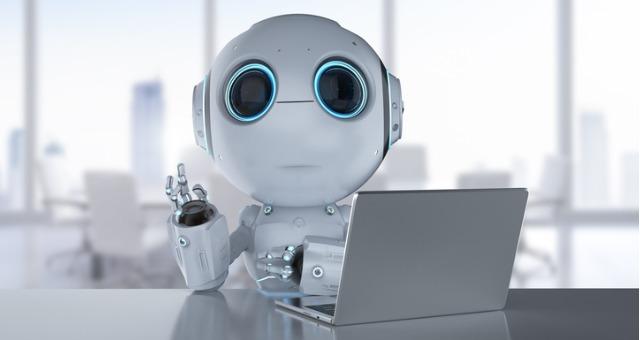In today's rapidly evolving digital landscape, AI technology has ushered in a new era of convenience and innovation. One of the most intriguing developments is the emergence of AI content generators, which have revolutionized the way we produce written material. From essays and reports to marketing copy and social media posts, these tools promise efficiency and productivity. However, as we delve deeper into this realm, it becomes evident that the rise of AI content generators brings with it a set of challenges, particularly in terms of bias and ethical considerations.
Understanding AI Content Generators
AI content generators, often referred to as "bot writers" or "content generators," are software applications powered by artificial intelligence algorithms. These algorithms are designed to analyze vast amounts of data, learn patterns, and generate human-like text based on the input provided. As a result, these tools have become popular for various writing tasks, including essay writing for university admission and report writing.
Read More: Ensuring Authenticity in AI Writing: Navigating the Ethics and Plagiarism Debate
The Promise of Efficiency and Accessibility
One of the primary advantages of AI content generators is their efficiency. These tools can produce high-quality content in a fraction of the time it would take a human writer. This rapid output is particularly valuable in scenarios where time is of the essence, such as meeting tight deadlines for academic assignments or business reports. Additionally, AI content generators can enhance accessibility by providing a solution for individuals who may struggle with writing due to language barriers or other limitations.
The Pitfalls of Bias
While AI content generators like the AI essay writer, or the AI topic generator offer impressive capabilities, they are not immune to flaws. One significant concern is the potential for bias in generated content. These algorithms learn from existing data, which may inadvertently include biases present in the text. For instance, if historical data contains biased language or viewpoints, the AI may replicate these biases in its output. This could have serious implications when it comes to producing fair and unbiased content, particularly in sensitive subjects or contexts.
Addressing Bias in AI-Generated Content
The issue of bias in AI-generated content is a complex challenge that requires careful consideration. Developers are actively working to implement safeguards and mechanisms to identify and mitigate bias. This includes refining algorithms to recognize and rectify biased language, as well as incorporating diverse and representative training data. Additionally, human oversight remains crucial in reviewing and editing AI-generated content to ensure it aligns with ethical and unbiased standards.
Ethical Concerns and Accountability
Beyond bias, AI content generators raise broader ethical concerns. As these tools become more advanced, questions arise regarding the accountability for the content they produce. Who is responsible if the AI generates inaccurate or misleading information? How do we ensure that AI-generated content meets ethical and moral standards? These are pressing questions that demand thoughtful reflection and action.
Balancing Innovation and Responsibility
The rise of bot writing underscores the delicate balance between innovation and responsibility. While these tools offer remarkable capabilities, it is essential to approach their adoption with caution. Striking the right balance involves comprehensive testing, continuous refinement of algorithms, and ongoing collaboration between developers, content creators, and ethical experts.
Embracing the Future Thoughtfully
In conclusion, the rise of bot writing has brought about a transformative shift in content creation. These tools offer unparalleled efficiency and accessibility, but they also come with inherent challenges related to bias and ethics. As we embrace this technology, it is imperative that we approach it thoughtfully, prioritizing efforts to address bias, uphold ethical standards, and ensure accountability.
FAQs
Q1: Are AI content generators capable of replacing human writers entirely? A1: While AI content generators offer remarkable capabilities, they are not poised to replace human writers entirely. Human creativity, critical thinking, and nuanced understanding remain essential for many types of content.
Q2: How can I ensure that AI-generated content is free from bias? A2: Developers are actively working to reduce bias in AI-generated content by refining algorithms, incorporating diverse training data, and implementing human oversight for content review.
Q3: Can AI content generators be used for academic purposes, such as university admission essays? A3: Yes, AI content generators can be utilized for academic purposes, but it's crucial to ensure that the content aligns with ethical standards and accurately represents the individual's capabilities.
Q4: What role does human oversight play in AI content generation? A4: Human oversight is essential in reviewing and editing AI-generated content to identify and rectify any potential biases or inaccuracies.
Q5: How can businesses and individuals benefit from using AI content generators? A5: AI content generators can enhance efficiency and productivity for businesses and individuals, enabling them to create content quickly and effectively for various purposes.
For More Information:
AI-Enhanced MBA Application Tools: From Essays to Interviews
The Role of AI in Combating Fake News: Automated Content Fact-Checking and Verification
Transformative Role of AI in MBA Admissions Essays: Crafting Personal Narratives
AI-Enabled Dissertation Writing Services: Empowering Scholars for Success


